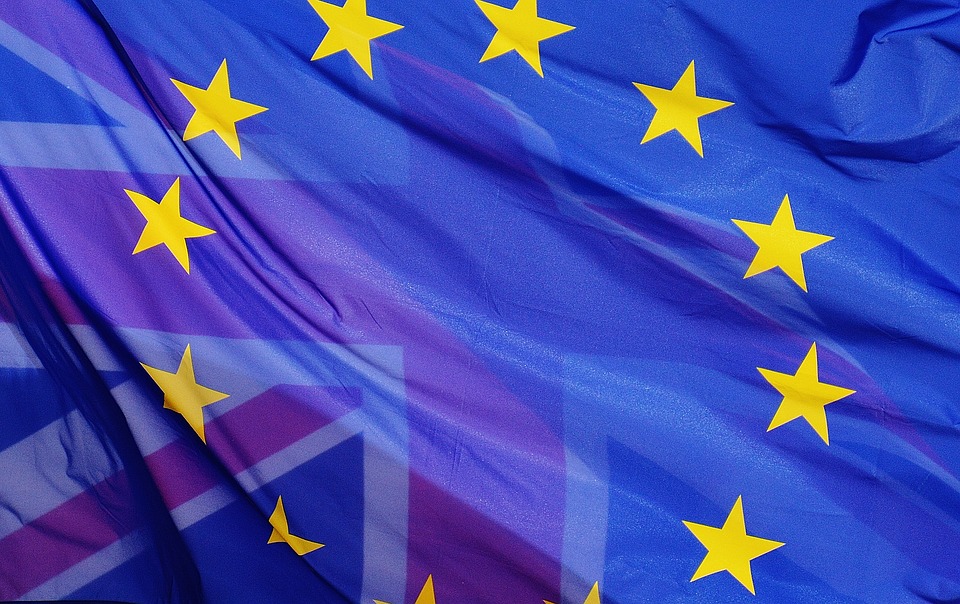
As the UK heads for the Brexit, we take a look at some of the potential impacts leaving the EU could have, and has had already, on the hospitality industry.
On June 23rd the people made their voices heard with a vote on whether to stay or leave the European Union. The decision to leave has sent shockwaves down the spine of modern politics and the economy, but what about on an industry-specific level?
Many predict that hospitality will be one of the industries hit the hardest by the Brexit. Jobs are likely to be lost and acquiring the right expertise could prove to be expensive. Aron Harilela, owner of Harilela Hotels, runs an 85 room hotel in London where all but 5 of the employees are EU nationals.
"It's going to be very difficult for the hotel industry to employ staff that are all UK-based," he said, adding that it’s "not as if jobs are being taken away (by EU citizens). In my opinion, for my industry, it would be a disaster."
Is he right though? Let’s look at some of the facts.
Almost a quarter of hospitality staff working in the UK today are from overseas. 45% of those are EU nationals.
A survey conducted by William Reed/HIM stated that opinion was split on leave/remain before the vote, with 39% for leave and 37% for remain. Smaller, more local operators, such as pubs, were more likely to favour a leave vote than remain, possibly due to being less dependent on EU workers.
With a significant chunk of current hospitality staff (chefs, waiting staff, etc.) being EU nationals, required for their expertise in different culinary styles, a serious recruitment crisis could be on the horizon.
The UK, much like the rest of the world, is already facing a shortage of good chefs, and while the depth of the issue depends on style of cuisine, European-style restaurants could take the biggest hit, worsening what is already a serious issue. Naturally, this issue hinges on what kind of deal the UK gets, with acceptance of free movement a necessity to access the free market.
Without free movement, costs and time to recruit EU staff will rise significantly. Emma Brooksbank of Simpson Millar said a lack of free movement would incur costs of at least £2675 per employee to recruit outside of the UK. This would make it less appealing for both business owners and EU nationals alike, who would likely seek a move to an EU country instead. Changes to terms of employment on an individual basis will also need to be made.
Even then, with talk of the introduction of a points-based immigration system whereby migration into the UK is granted based on skills, are bar staff, chefs and waiting on staff considered skilled enough to pass?
The reduced value of the pound has also led to some early changes in industry climate, particularly in the hotel industry. Bookings made by overseas people at UK-based hotels have risen significantly since the vote happened due to the falling pound. With it set to potentially decline further by year end, the hotel industry could continue to surge in a strange manner.
The hotel industry could also receive a boost from the UK population. With the pound declining and uncertainty surrounding the economy, holidaymakers may opt for a staycation, fuelling the UK hotel industry further.
Aside from the points above, everything else would be a calculated prediction. Import foods and goods could have tariffs imposed on them, raising the cost of buying food and thus meals in general.
Tom Kerridge, owner of The Hand & Flowers, said, “I’m a little concerned how food costs will spiral. We’ve grown so much, we’re very much working towards being sustainable, but nowhere near there yet. It's fine to say we’ve got British fish, but there are also other commodities like flour and oil to consider. It’s the customer who will end up losing out.”
If tariffs are placed on import goods, businesses that source their food locally will reap the benefits.
Then there’s the issue of whether current EU workers will be allowed to stay. Politicians will say they can, but lawyers say that it isn’t as simple as saying that.
Less pressing matters include the unravelling of EU legislation on things such as food waste and environmental targets.
Ultimately, it’s impossible to make any predictions of certainty on where the hospitality industry will be post-Brexit. We first need someone to take the wheel of the sinking ship we find ourselves on and steady everything out, offering confidence that a Brexit will not leave the UK in turmoil. The exit will then need to be sensibly and amicably negotiated before we have a clearer picture on what post-Brexit hospitality will look like. Early signs suggest that consumers aren't fussed; spending on eating out and going for drinks remains as high as ever. We're yet to actually leave the EU though, so any indicators pre-triggering of Article 50 need to be taken with a pinch of salt.
Until then, as you were people.